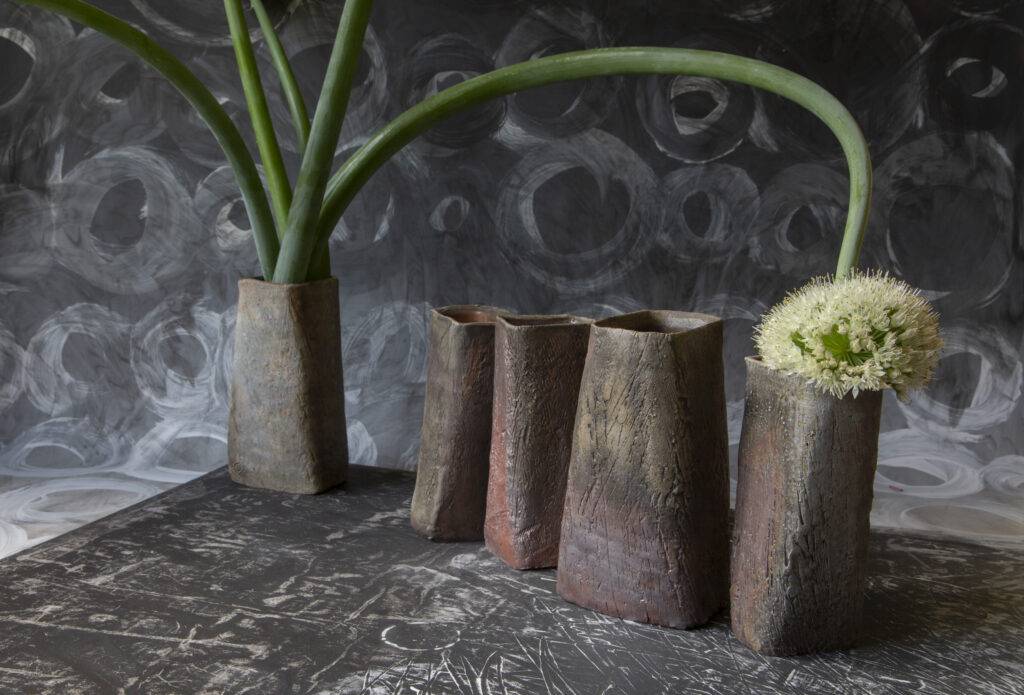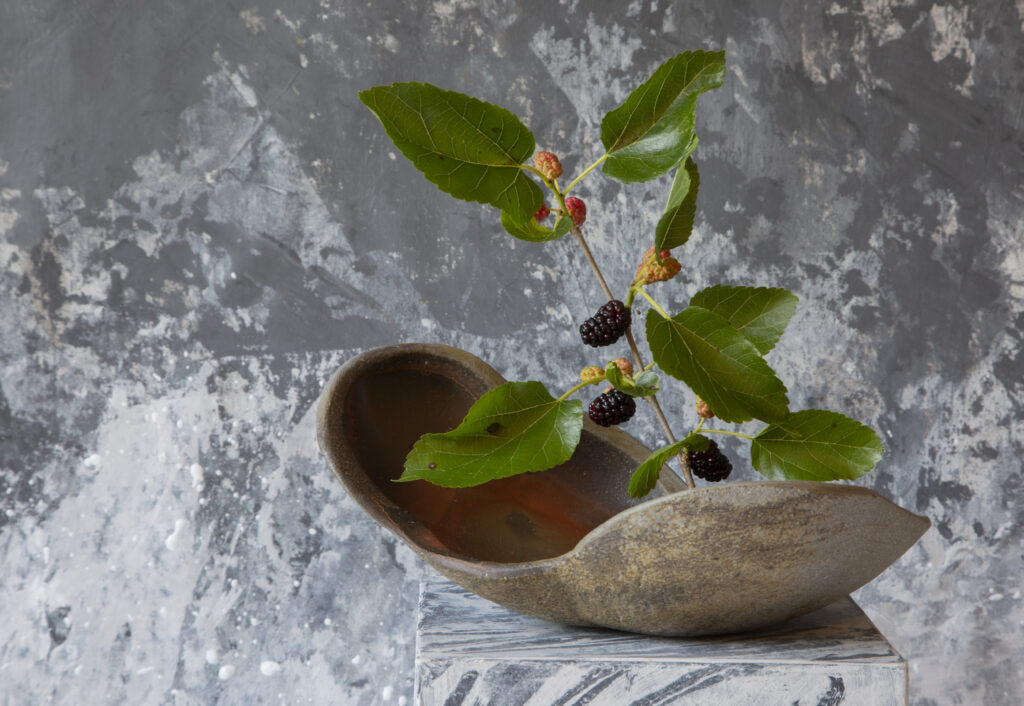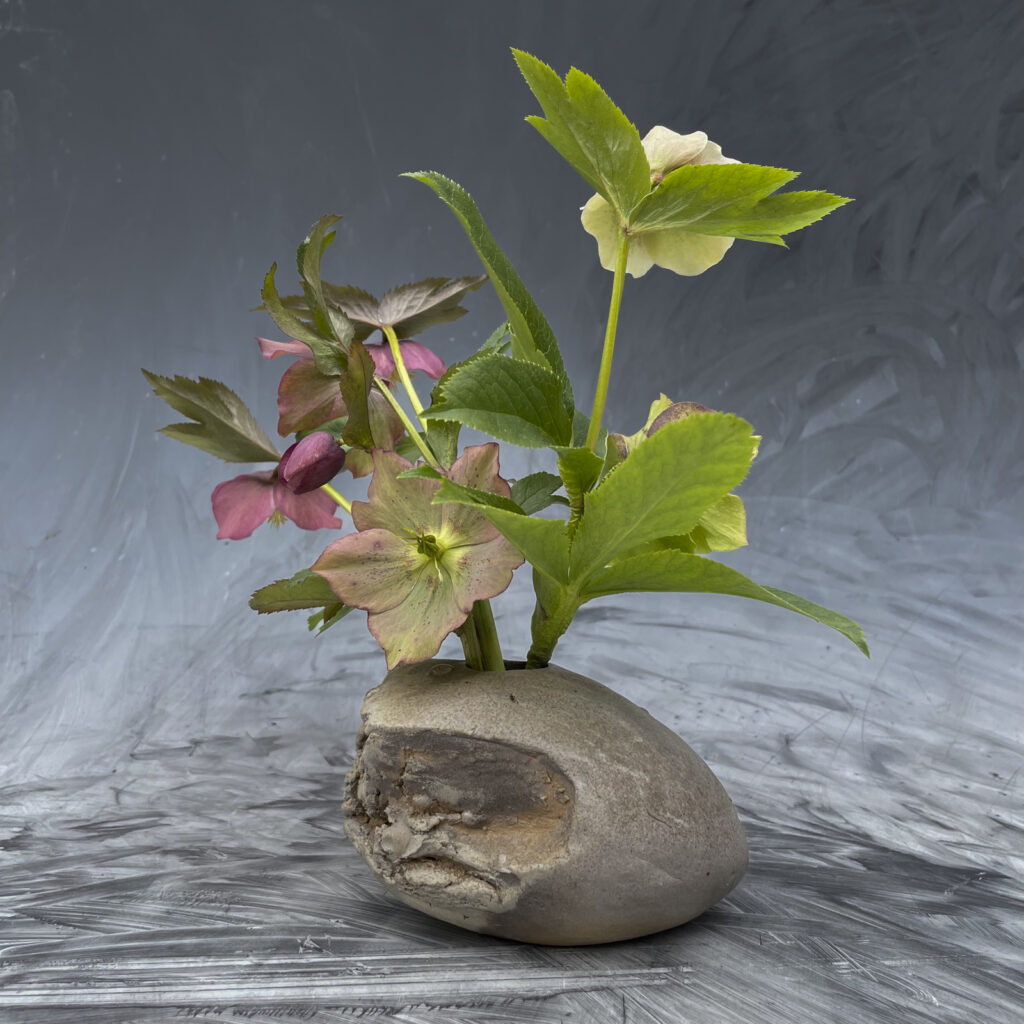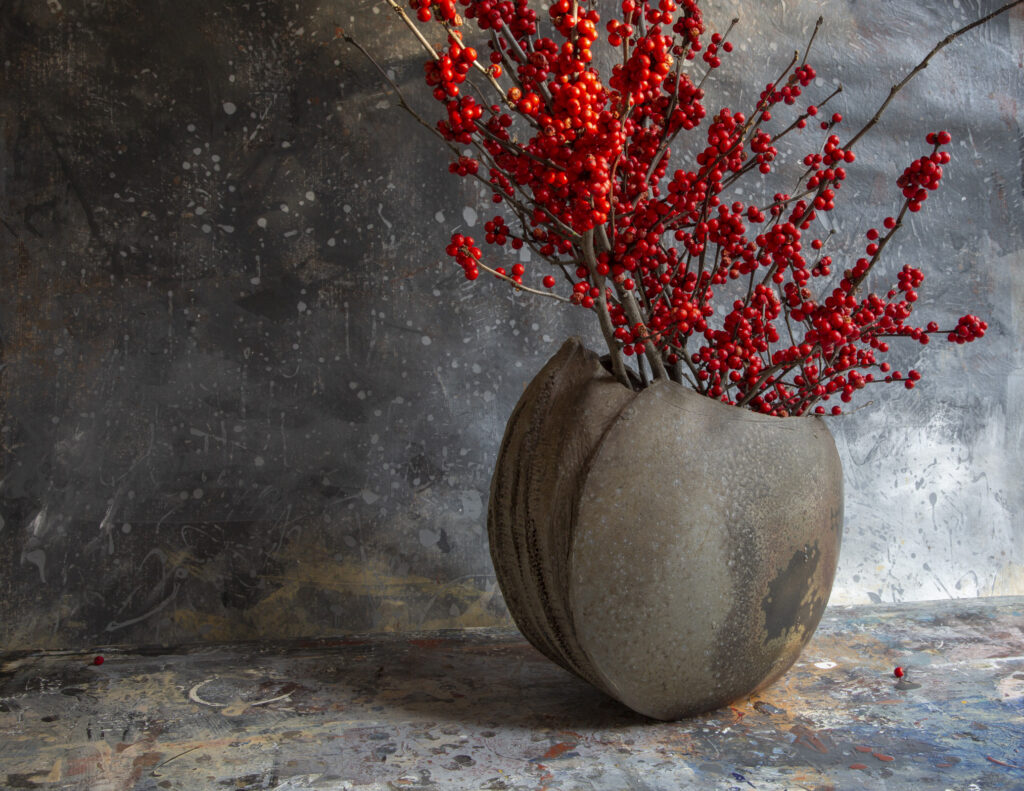While cleaning up for my exhibit/sale this weekend, I moved some photo books around and found an old picture of my mom in Maine weeding her flower bed when it was new. I was struck by how I have let the daylilies and the fireweed fill all the space. She loved those flowers. When I arrive in Maine, I admire the bees feasting on the purple fireweed, cheering those tiny wings that have flown from the mainland to our little island. When we spread my mom’s ashes in the ocean in Maine my dad first asked everyone to pick every blooming daylily. We put them in buckets and after we sifted the ashes into the sea, we tossed the lilies and watched them float away. The following morning, I walked the high tide mark hoping to find a flower tangled in the seaweed to press into my journal. But none were to be found. That’s what death feels like, you go looking for evidence of life and it is missing. With a heavy heart I walked up the path to the cottage and there in the garden all the daylilies were blooming again.

I bow closer to the new face. I am always superimposing
a face on flowers, I call the violet moon vinca
the choir, and there are surely eyes in the birdeye speedwell,
and mouths on the linearleaf snapdragon.
It is what we do in order to care for things, make them
ourselves, our elders, our beloveds, our unborn.
But perhaps that is a lazy kind of love. Why
can't I just love the flower for being a flower?
How many flowers have I yanked to puppet
as if it was easy for the world to make flowers?
--Ada Limon, from In The Shadow, in The Hurting Kind, Milkweed Editions, 2022








